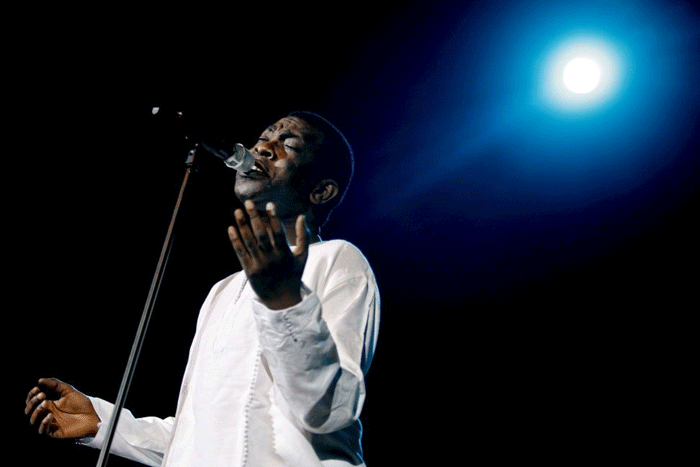Youssou N'Dour, IndigO2, London

Along with Baaba Maal, N'Dour is probably Senegal's biggest star, but one who has re-invested his success in the local music industry. With his own label, studio, radio station and club in Dakar, he has become part of the establishment of modern African music.
N'Dour sang with the Star Band of Dakar (later Orchestra Baobab) while in his teens, but set up the Etoile de Dakar in 1979, fusing US and Caribbean influences with native Wolof styles to create the high-BPM dance music, Mbalax.
Now approaching his 50th birthday, N'Dour reunited with his Etoile de Dakar band for last year's Rokku Mi Rokka ("Give and Take"). This was a muscular recording inflected by the blues, reggae and Cuban rhythms that originated from, and returned to, West Africa, alongside rhythms from the north of Senegal.
Tonight, he's back with the Etoile de Dakar at the IndigO2, which is more shiny floor than high art; N'Dour's supple, energetic dance music, pumped out by a nine-strong band that includes four percussionists, two keyboard players, two guitarists, backing singers and bass, is perfect for the venue.
If there is one downside, it's that the show doesn't open until just before 10pm. The audience makes its displeasure clear until the band finally appear, speeding off with the new album's opener, "4-4-44". During the likes of "Bamba" and "Yonu Deugeu", it's the weave of percussion, bass lines and quicksilver guitars with N'Dour's extraordinary voice that stands out. His singing is a rhythmic device as much as an emotional force, rising through the undergrowth of songs such as "C'est L'Amour", "Immigrés" and the career-defining "Set" – taken from the album that marked his first major international release, and extending into a furious percussive workout.
The driving rhythms of Mbalax are there in force, a kind of musical amphetamine that's matched by the band's panoply of lesser-known Senegalese styles, as well as an absorption of blues and jazz, the "give and take" of the latest album's title, and one that the singer explores in his upcoming documentary film on the slave route and jazz, Return To Gorée. Closing with an extended "Seven Seconds" and "New Africa", an anthem of invigoration and positivity, N'Dour and his band bring African music closer to the mainstream.
Subscribe to Independent Premium to bookmark this article
Want to bookmark your favourite articles and stories to read or reference later? Start your Independent Premium subscription today.

Join our commenting forum
Join thought-provoking conversations, follow other Independent readers and see their replies